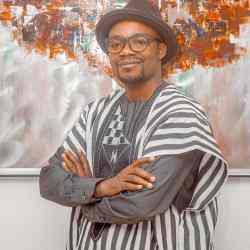Introduzione
Gioiosa Ionica, in the Calabria region, is one of the poorest provinces in Italy and Calabria is one of the poorest regions in Europe. The economy is largely run by ‘Ndrangheta, the local branch of mafia. Since 1996, Vincenzo has been determined to change the inevitability of a mafia presence in his land by creating a parallel positive economy that offers the local population a third alternative between unemployment and collaborating with organized crime. Consorzio Goel is a consortium of 15 social enterprises and 28 businesses which came together to create a ‘democratic holding for change’ under Vincenzo’s leadership, with the ultimate goal of stifling the Ndrangheta’s hold on the economy
La nuova idea
Vincenzo believes that wealth can be created in Calabria and beyond without association with the mafia by creating a working example of an inclusive, environmentally friendly and socially-minded economy as an alternative. This alternative economy can create jobs, thus delegitimising the mafia as the only hope for locals. People will then be more likely to speak against it, as they won’t depend on it for income, bringing us one step closer towards defeating the mafia. Vincenzo leverages the assets that his region provides despite its extreme geographical isolation and mafia-infiltrated economy: from the infrastructure of a former textile industry to the fertile land or the large number of people in search of a job. He builds on these assets to re-create an economy which is ethical, inclusive, legal and environmental-friendly. To create more jobs and therefore weaken the real but also psychological hold of power of the ‘Ndrangheta, Vincenzo connects his consortium to large retailers from the North of Italy, to create demand for its products. As the mafia expands to Northern Italy where it has become an economic power by investing the money it has acquired illicitly, Vincenzo follows it by involving consumers and businesses in an anti-mafia movement.
It all began with Cerca Lavoro, an incubator for entreprises that has provided support to hundreds of local businesses since 1996. Cerca Lavoro provides legal, administrative, fiscal and business advice and support free of charge. In exchange, if the company succeeds, a 2% fee on their profit would be owed to Cerca Lavoro for the first few years. In 2003 it joined several other local businesses and cooperatives who wanted to oppose the mafia economy by creating Consorzio Goel. Since then, under Vincenzo’s leadership, other important social businesses have emerged within the consortium.
Cangiari (to change in the local dialect) is the first ethical brand in the Italian fashion industry. All textile material is organic, fair trade and ecological and the textile workers are all disadvantaged people united in a cooperative, so part owners of the means of production. Versace is among their clients.
Goel BIO works in Rosarno, a small village that became infamously popular nationwide in 2010, when African migrants, kept as workers in orange fields in near-slavery conditions, started a revolt in which several of them were shot. Oranges are typically bought from farmers for as little as 5 cents a kilo from distributors that belong to the ‘Ndrangheta. Goel wants to offer an alternative, buying them for 40 cents a kilo in exchange for a compulsory inspection by the authorities to make sure that workers are hired with regular contracts, that their conditions are dignified and that their cultivation is indeed organic. NaturaSi, a chain of organic supermarket, is a client. The for-profit companies that have joined the Consortium are largely agricultural businesses who have been convinced that Vincenzo’s model is the way forward. This way, Vincenzo is actively taking away market share from the mafia. In October 2015, as this profile was being written and days before the harvest of oranges, some of the tractors belonging to one of these businesses was burnt by the mob. While this is horrible, when the mafia uses violence it is usually because they feel under attack, so the strategy against them is gaining ground.
Coop idea is a community house for disadvantaged teenagers who have been excluded by the education system for behavioral issues. Many of them experienced exposure to violence at home, often in families actively involved with the mafia. In the last 10 years, 100 youth have gone through Coop Idea. The house hosts up to 10 at the same time. Until recently, after a period of support by psychologists and educators, most kids would be offered an apprenticeship in local small businesses to give them a chance to access the job market. Unfortunately, they were usually unable to obtain jobs in this way. Vincenzo then tried to embed a working space inside their community house. The Vodafone Foundation has provided all the machinery to create an organic cosmetic lab. Its products are called Goel Cosmesi. Waste material from the olive oil production (leaves, small olives, oil that is too acidic to be eaten) are used to make essences, perfumes and other personal care products.
Aiutamundi (let’s help ourselves in the local dialect) is a platform for a cash-free local economy. In a place with high unemployment rates as well as tremendous social need, there is also too little money to connect latent supply and demand in the market. Vincenzo has therefore created a system which includes 100 local businesses, in which economic interactions happen with cash-free online transactions - most people give and receive useful services, from legal help to construction, thereby stimulating the local economy and enabling social mobility and progress without the need for money
These are just a few of Vincenzo’s innovations. The new idea lies in in the creation of a parallel economy to the mafia’s and by connecting this new ecosystem to a positive economy in the rest of Italy and beyond. The isolation and brain-drain of Calabria can stop only when local opportunities are a reality.
Il problema
The phenomenon of mafia is widely misunderstood outside of Italy. Beyond being a criminal organization, the mafia is a financial player, which manages an increasing number of sectors of the economy – covering everything from from illicit drugs, arms and prostitution trades, to large parts of the real economy such as waste collection and disposal, infrastructure building, energy production and public procurement. In a poor and remote region such as Calabria, it has become difficult to distinguish the blurry line between the legal and the parallel economy. Most aspects of political and economic decision-making are in a way or another managed by ‘Ndrangheta. Those who oppose it do not have many alternatives but to leave. Calabria has undergone a massive brain drain, towards other Italian regions and beyond. Those who cannot move are usually faced with the choice between unemployment and affiliation with the mafia. This does not necessarily mean leading a violent life. This usually means keeping silent, accepting that all key political or economic positions are decided from the top, not reporting report mismanagement of public resources, embezzlement and corruption. Anyone who would want to start their own enterprise would soon be approached by the mafia who will offer their “protection” in exchange for a monthly payment. Those who refuse will face isolation and their business is very likely to be burnt down or boycotted by potential buyers and providers. Reggio Calabria, the province where Vincenzo operates is one of the poorest and most remote of the country, with the unemployment rate reaching 75%. It was once an active textile region, providing textile material to the fashion industries of Northern Italy until production moved to Asia in the 1990s.
As people are forced to accept the inevitability of the criminal control of their territory, they are suppressed of their true sense of citizenship. Voting one or the other candidate in local elections will not make a difference. The ‘Ndrangheta therefore oppresses entrepreneurship at many levels: from the economic to the political up to the cultural and psychological. People’s traditional mindset is limited in their ability to perceive change as possible, and even less to become themselves the changemakers who are able to bring that change about.
La strategia
Vincenzo’s strategy is rooted in the belief that change can happen if the mafia is delegitimized not only theoretically but by showing that a positive economy provides jobs, as well as social and environmental impact on the territory. Local people need to be shown concretely and not only abstractly that ethics can pay off; that there is an alternative to the mafia for families, for the unemployed, for the entrepreneurs. Others have tried and failed, but Vincenzo had a powerful weapon on his side, in this land in which mistrust for others permeates social relations. He was clearly not doing this for personal benefit; he lives in a communal house he shares with other families and single disabled adults. He has never made a profit from any of his enterprises, only receiving a small contribution as the Consortium Director. He has refused to run for office, even if people from every party, eager to clean their image, have begged him to do so for decades. By gaining trust from the local population he was able to start small and build different parts of this positive economy. He also had the crucial support of the local bishop.
Vincenzo’s model works by first establishing and encouraging local enterprise and then by connecting the local economy to the rest of the country and beyond.
Vincenzo began in the year 2000 by creating an enterprise incubator for small businesses or cooperatives. He went on to build tile by tile the mosaic that is now called Consorzio Goel. His strategy to enlarge the consortium is also based on understanding regional assets and creating a role for them in the supply chain. For example, Goel Cosmesi was initially born as a consequence of having tons of orange peel wasted as a result of orange juice being produced by GoelBio. Vincenzo researched on the possible uses of orange peel and saw it could be distilled to make perfumes. It combined this with the need of local school drop-outs to learn a profession, and created Goel Cosmesi, whose labs are built inside a foster care residence. He has reached an agreement with a Swiss supermarket chain (Swiss Coop) but the ambition is to expand to all regions where the tentacles of the ‘Ndrangheta have spread. Vincenzo has developed a series of high-end alliances with sectors of the real economy across Italy. Versace commissions parts of their clothes production to Cangiari, NaturaSi, a large organic supermarket chain, and Conad, a large retailer are among the buyers of Goel Bio and so is Swiss Coop. Vodafone has sponsored all of his distillation machines to make perfumes and other cosmetic products. His strategy is to make the enlargement of Consorzio Goel demand-driven. The more mafia control of a territory becomes an issue consumers are aware of, the more ethical products will be in demand, with more jobs and more wealth created locally, with a positive impact on the local economy and environment.
Lately, the Consortium has added a new element, Goel s.p.a (snc). This will allow capital to be invested in the other elements of Goel with the critical aim to enlarge the number of Calabrian stakeholders who support Goel. He wants to take Goel to the next level, not only meaningful to the hundred people working within it , but as a tool for the fight against organized crime to encompass more and more people. His dream is to extend his work beyond Italy. The ‘Ndrangheta now controls most of the global trade of cocaine, has infiltrated the economy of dozens of countries, from Canada to Germany. Awareness and community organization need to stretch beyond Calabria to actively fight ‘Ndrangheta wherever it expands. There are two ways in which Consorzio Goel can scale. On one hand, the model can be replicated in other countries where a similar control of the territory by organized crime is present. Indeed people from Colombia and Mexico have contacted Vincenzo, but he needs help, as there are language barriers. Secondly, the model can scale as the awareness of the struggle against organized crime grows beyond Italy to other countries, more demand will grow for mafia-free products and services, making Vincenzo’s fight against the ‘Ndrangheta closer and closer to victory. segments
La persona
Since 1996, when Vincenzo was in his 20s, he has dedicated his life to Goel. He is a very religious man, and sees what he’s doing as a very effective way to put Christianity in practice. He lives in a community house with other people, with one common bank account and a shared communal budget. His wife and child live with him. He is very humble and, while his leadership within Goel is indisputable, he always wants to stress the community behind is, beyond his personal involvement. He does not have a graduate degree but spends his evenings learning as a self-taught student every field that has to do with a part of his consortium. He talks with knowledge about agriculture, fashion, cosmetic, philosophy, economy and engineering. He has won several awards among others the Premio Internazionale Guglielmo Zucconi in 2010 (dedicated to outstanding individuals achieving impact on the youngest generations) and the award by Fondazione Carical for the “ Best Manifestation of Mediterranean Culture”.




